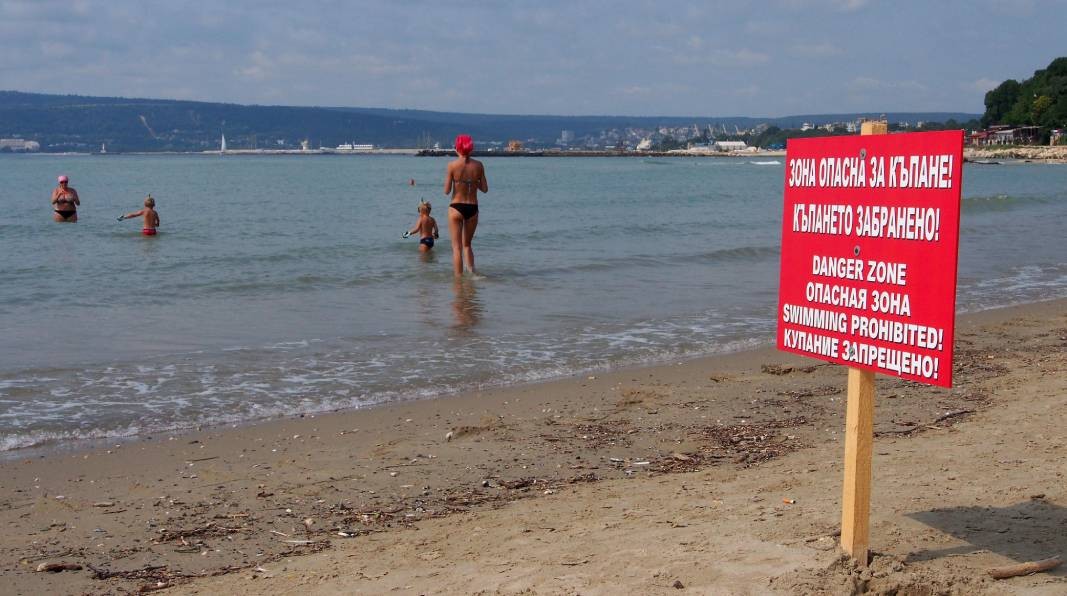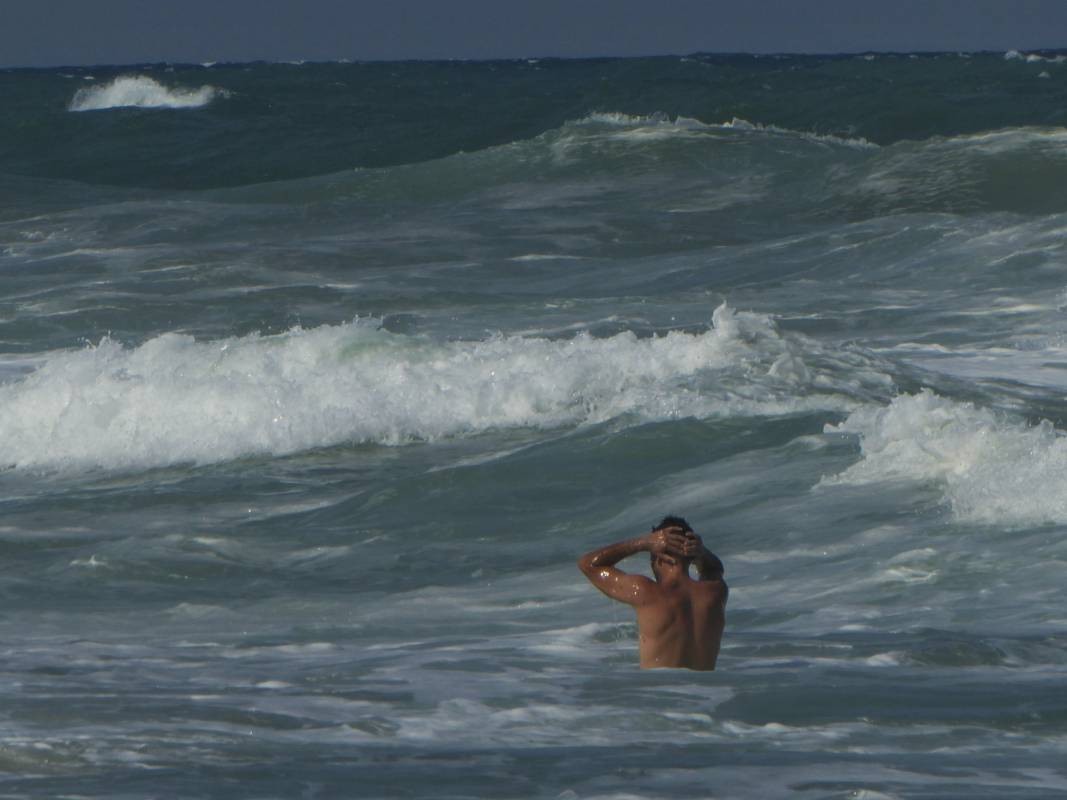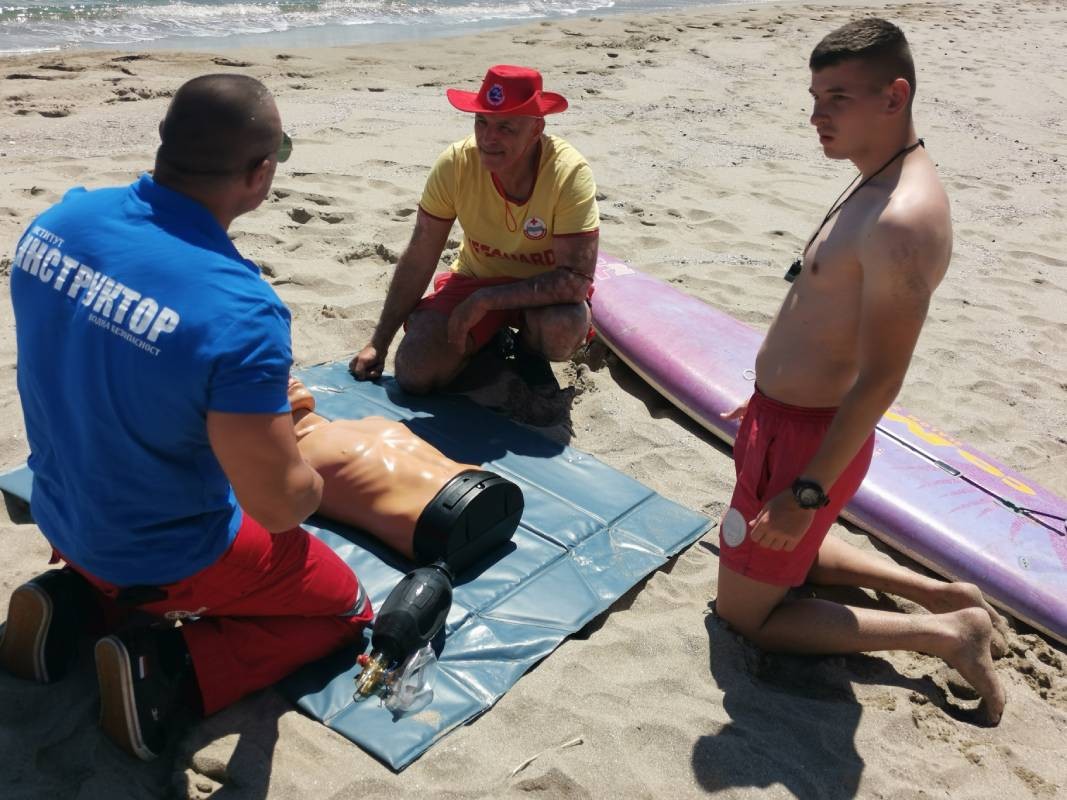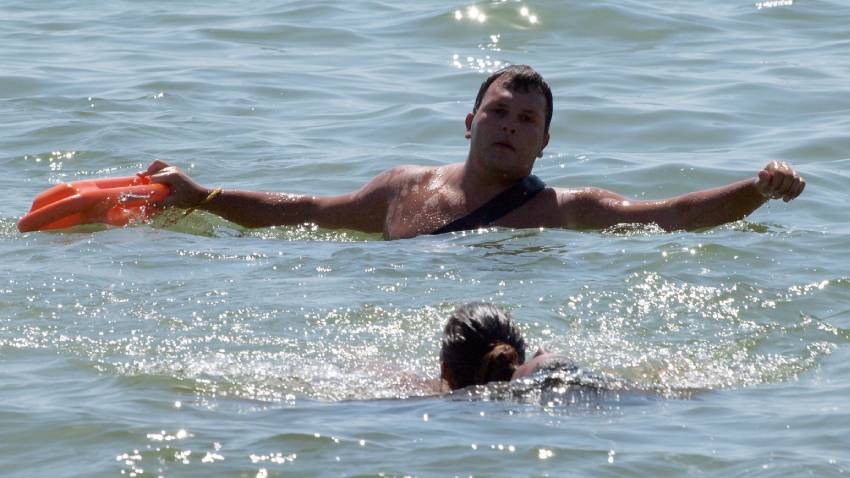The summer and the heatwaves that have engulfed the concrete jungles we inhabit drive most people to seek more frequent and longer-lasting coolness by various waterbodies and, of course, at the Black Sea coast. However, upon arriving at the beach, some people decide that they have the right to rest undisturbed as they see fit, sometimes even in defiance of the regulations of the accommodation places. Conflicts often arise on the beach with various vendors and even lifeguards, whose safety recommendations are ignored. In 2023, a total of 5,753 citizens received help from lifeguards on the Bulgarian beaches. 767 people have been trained to take up this important profession.

What are the most common causes of water accidents? Milena Sirakova, director of the Bulgarian Red Cross in Varna, has more:
''The highest-risk group consists of men aged between 50 and 60. Incidents with women resulting in fatalities are much less frequent. Fatalities are caused by health-related problems such as heart attacks or strokes, alcohol consumption, failure to adhere to safety rules, going in the water when there is a red flag, etc.''

If you are going on holiday to the seaside in August, the Society of Water Rescue Specialists of the Bulgarian Red Cross-Varna recommends that you strictly adhere to the lifeguards' instructions, as there is a risk of encountering what is known as a "rip current", which is dangerous even for the most experienced swimmers. According to them, the Black Sea has a very strong breaker wave that can lead us astray and quickly drag small children who are in shallow water into deeper water. If caught in a rip current, people should not panic but swim parallel to the shore. "When a tourist ignores the beach warning flags, there are conditions for an incident for which the lifeguard may be held liable", reminds the director of the Bulgarian Red Cross-Varna.

Despite the annual courses conducted by the Bulgarian Red Cross, this field, like many others, suffers from a lack of sufficiently trained personnel:
''The trained individuals should be enough to meet the demand for lifeguards, but obviously not every lifeguard who has completed the course and received a certificate ends up working as such"– explained Milena Sirakova. – That is why there is a shortage of staff in some places, and the issue of motivation has become a priority. Employers need to make this profession more attractive by offering conditions that will encourage young people to choose it despite its seasonal nature."

Milena Sirakova reminded that the issue of creating the so-called beach police has been raised for years. It would support the work of lifeguards, intervening in cases of conflict between them and holidaymakers. It would also benefit tourists by making their vacation more complete and secure. According to Milena Sirakova, the composition and the specific activities of such a unit are issues that need to be addressed by the relevant institutions.
In a tradition that began informally over 40 years ago and has evolved over time , thousands of people crowded onto Bulgarian beaches on 1 July to welcome the sunrise. July Morning was celebrated in many places with rock concerts that continued..
In the centre of Varshets a new singing fountain now rises. The modern landmark has transformed the central square, quickly becoming a favourite venue for the locals and for the guests to the town. The installation immediately attracts the attention..
Three European bison calves were born in the Eastern Rhodopes during the past few weeks, the Rewilding Rhodopes foundation has announced. They are the first additions to the herd for the year and are already accompanying their mothers as they walk..
The consulates of a country abroad are usually seen simply as the place where citizens go when they need assistance—whether to obtain documents or resolve..
One of Bulgaria's longest-running summer festivals takes place in Primorsko , a resort town on the Black Sea coast. Over the next three months, Prim..
Colourful, ethereal, and subtle, butterflies are everywhere around us – day and night, in the city and in the countryside. However, zoologists warn that..

+359 2 9336 661
